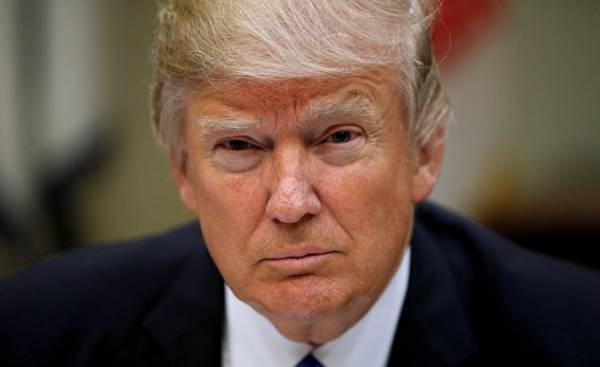
Once in January 1934, Poland signed a nonaggression Pact with Germany, relations between the two countries developed quite well. Berlin, and sought as poles, softened his revisionist policies, and the participation of Poland in the partition of Czechoslovakia was perceived as a signal of readiness of Warsaw to keep Pro-German or at least a neutral stance in the upcoming European conflict.
Munich showed that Germany is committed not only to the revision of the Versailles system, but also to the isolation of Czechoslovakia, which is in Alliance with France. This agreement was followed by a lesson that Paris can not be a reliable ally, and Warsaw in the event of a conflict, it is not necessary to count on his help.
Hitler planned to strike the first blow against France, so he saw the task of Poland to protect Germany from a possible attack by the Soviet Union. Requirements Berlin against Warsaw (the annexation of Gdansk to the Third Reich and laying the extraterritorial highway from Germany to East Prussia) were rather moderate. As the price of a mutual agreement, which in the future could lead to a joint Polish-German performance against the USSR, they looked quite acceptable. The Alliance with Germany was designed to protect Poland from the danger of war first. England decided to upset this scenario and to direct German attack not to the West and to the East, for this she offered their guarantee. Minister józef Beck (Józef Beck) chose London and got thus to a trap, made by the British. As a result, in September 1939, Poland had not just to fight alone, but be in the beginning of the war an independent party to the game, which was developed in the future. Beck ignored the two basic axioms of the Polish policy, which stated that Poland should not be the first to fall under military attack and allow to isolate itself, under the threat of conict.
About this trap, remember those who are engaged in Polish foreign policy at a time when the international system as before the First and Second world wars, is undergoing radical revision, and future changes can radically change the place of Poland in the world. This is the era of rivalry, chaos, instability and growing threats not only on the main front of the battle for a new world order in the Western Pacific, but practically worldwide, including in East-Central Europe.
It should be noted that a major factor in the growing us-China confrontation (as in its commercial and military). It remains, of course, the economic power of the second echelon, however, has a modern army and, most important, occupies a key position in the impending conflict.
Hidden Russia
Both Russia and China are revisionist States that seek to radically change the system based on military and economic dominance of the United States. This commitment stands as the Foundation of their Union. Their Union is asymmetrical, because of the key role it plays in Beijing. In turn, Russia through cooperation with them can strengthen their position. Putin wants his country occupied a place similar to that in the era of the Yalta system of the occupied Soviet Union and became a state, which is dictated by others, the principles on which to build a global architecture. In the context of U.S.-China conflict, Putin can reorient its policy. Time will work here in Moscow, if earlier the Russian Federation itself will not face internal destabilization.
The essence of the debates that are underway in the US today is not the fact whether to go to the rapprochement with Russia, and besides, in what circumstances and on what conditions it should be done. Both Democrats and Republicans want to stop the Chinese March towards world domination. They argue only whether to do it now or wait for the destabilization of Russia, to be able to dictate the terms on which will be concluded us-Russian Union. In the first case, the Union would be symmetric for the US and they will have expensive to pay for it, the second asymmetric and less painful. Both options will allow Russia to reap the economic and geopolitical benefits, the only question is what it will cost.
Putin puts the question directly. He is convinced that the key to resolving the impending conflict would be Moscow, and so it supposed to be the Central actor in international politics, because without it nobody will be able to stop China’s development, nor, in all likelihood, to win in a military conflict. The restoration of the position of the Soviet era means, in particular, that Russia strives to regain influence in Eastern-Central Europe. This, however, does not agree to the Americans. Their policy is based on a geopolitical doctrine, which States that Moscow will not pose a threat to the US position as long as she doesn’t get control over our region. While this idea remains in the American strategies axiom.
It’s time to get up off his knees
And here we come to the fundamental task which faces Poland. A response to a potential Russian threat in the last 25 years has been the accession to NATO and the EU. Now both Union survive the crisis. In addition, the member countries of the Alliance does not consider Russia its enemy, and in the European Union trends towards rapprochement with Moscow. In such a situation, Warsaw need to redefine the direction and purpose of its foreign policy. Yet the only response of the Polish government’s refusal to increase for defense spending, which was planned to increase to 3% of GDP, that is, the refusal to strengthen its own military capabilities. Warsaw made a choice in favor of the policy of the country satellite. This is reminiscent of the faith in the British guarantee of 1939, and mean that we refuse from the effect on the development of the situation, recognize the USA representative of our interests against Russia and reduce the value of Poland to the role of the representative of American interests in our part of the continent.
Experience teaches that such a policy leads to a trap and usually ends in disaster. Our interests are not identical to the interests of the United States and Western European powers. In turn, if the patron has to make concessions to the new ally, he most often sacrifices the interests of its satellites. There is a high probability that in the event of U.S.-Russian Union will be security of our region. Then Poland will be in the Russian sphere of influence or (most likely) will be directly from her border. Therefore, in geopolitical terms it will turn into a frontline state, which shall be at the mercy and disfavor of the neighbor. We will not be able to play an independent role in policy and put into question our security and the prospects for development.
Independent policy is a basic necessity in order to avoid the development of the darkest scenario. Warsaw should do it and declare their own interests, that is, to abandon the role of the state tournament. This does not mean that we have to break the old alliances, enough to rethink their place in them and our strategy in relation to the main actors of the international scene. Independence means the preservation of the Union with the United States, built on the new conditions. Polish and American interests coincide in that we seek to stop the Russian expansion in our part of Europe, however, Poland cannot assume the entire burden of responsibility for this task.
The United States was interested in Poland would guard their interests in this part of the continent. This purpose is served, in particular, the presence of American forces on the Eastern flank of NATO that have more symbolic than military value. First Warsaw should not make us instrument of pressure on Moscow and seek to ease the tension with Russia, because cooperation with it will reduce the risk of conflict. An example here can serve the policy of Germany 1970-80-ies, which, remaining a loyal member of NATO, sought to avoid the outbreak of war, because that would turn its territory into a battle field.
The development of economic cooperation with Russia would not only reduce the risk of conflict, but also help to build our own economic potential, and thereby create conditions for the formation of the foundations of national economic security. For a review of the policies of Russia, Warsaw will need their own channels of communication with Moscow and its own political program mutual contacts. Unfortunately, our government is apparently not prepared for this, either psychologically or politically.
Poland needs to become self-sufficient contacts with Washington and to cooperate in East-Central Europe, while the US interest in the region, but not to shoulder the burden of responsibility for it. So we need to adjust the strategy towards Ukraine. In 1994, the guarantor of the territorial integrity of Ukraine after its refusal from nuclear weapons was not Poland, and the United States and the United Kingdom. As its mediator in the talks with Russia, Ukraine also chose not Warsaw and Paris and Berlin. In this situation, we should reduce their activity, limiting the contacts with Kiev themes of our economic interests, cultural heritage and rights of the Polish minority and the relations of the Ukrainian state to the Volyn massacre.
If Warsaw wants to become independent in politics, she needs to set goals not only against Russia but also China. The growing American-Chinese confrontation is not our conflict. The Union of Warsaw and Washington must be mutually beneficial. This means that American policy should not create barriers for the Polish development. Strong in military and economic terms, Poland will become a factor that will ensure stability and balance in our part of Europe. In this role she will be a more durable obstacle to Russian expansion than the weak Polish state, which depends on foreign guarantees.
Chinese game
In this regard, Americans should not try to force our country to abandon economic cooperation with China, particularly those likely to develop that carries the new silk road — trade channel, which will connect China with Europe. Participation in this project will improve our security, because China has a vital interest in that its operation is not complicated by any conflict. In this way Poland will get an ally, which will put pressure on Russia, moderating its revisionist appetites in our safety zone. A sample of the Polish policy towards China should take a strategy Asian allies of the United States. These States interact with the Americans in the security field, but do not refuse from economic cooperation with China.
Passing Americans the right to lead the Polish national security policy and recognizing American interests identical with ours (and so did our leaders), we risk falling into the trap, as in 1939. It is likely that Russian-American agreement would strike at the vital interests of Poland. Begins the destruction of the system prevailing in the cold war era, and the formation of a new international architecture. The threat of outbreak of armed conflict is growing, in this regard, the main objective should be the formation of their own independent military capabilities, with which we will be able to protect their interests and guarantee the security of the country. The restructuring of the global system can pass peacefully, but unfortunately, this process also can turn into a war. Polish policy should seek to minimize this risk, avoid isolation, and to delay the beginning of the potential conflict as much as possible.
Therefore, we must not abandon the opportunity to articulate their interests and to defend them, not breaking ties with the allies, but by including contrary to their claims. Otherwise we will find ourselves in a situation in what was Poland, where the Minister Beck believed in the British guarantee. We get trapped in a costly cost. If only this price was not the same high, which had to pay the poles for the erroneous policy of the Beck.
Marian Pilka — historian, Deputy Chairman of the Christian conservative party, the “Polish right-wing” (Prawica Rzeczypospolitej).







